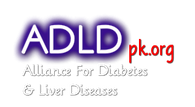RESEARCH DESIGN AND METHODS The DCCT randomly assigned 1,441 patients with type 1 diabetes to intensive versus conventional therapy for a mean of 6.5 years, after which 93% were subsequently monitored during the observational Epidemiology of Diabetes Interventions and Complications (EDIC) study. Cardiovascular disease (nonfatal myocardial infarction and stroke, cardiovascular death, confirmed angina, congestive heart failure, and coronary artery revascularization) was adjudicated using standardized measures.
RESULTS During 30 years of follow-up in DCCT and EDIC, 149 cardiovascular disease events occurred in 82 former intensive treatment group subjects versus 217 events in 102 former conventional treatment group subjects. Intensive therapy reduced the incidence of any cardiovascular disease by 30% (95% CI 7, 48; P = 0.016), and the incidence of major cardiovascular events (nonfatal myocardial infarction, stroke, or cardiovascular death) by 32% (95% CI −3, 56; P = 0.07). The lower HbA1c levels during the DCCT/EDIC statistically account for all of the observed treatment effect on cardiovascular disease risk. Increased albuminuria was also independently associated with cardiovascular disease risk.
CONCLUSIONS Intensive diabetes therapy during the DCCT (6.5 years) has long-term beneficial effects on the incidence of cardiovascular disease in type 1 diabetes that persist for up to 30 years.

 RSS Feed
RSS Feed





